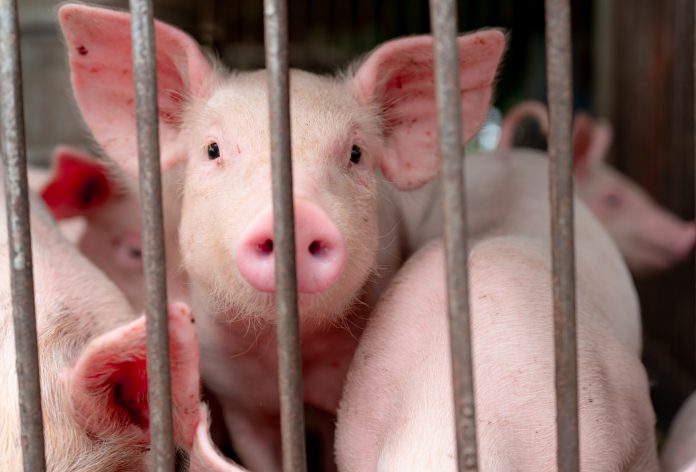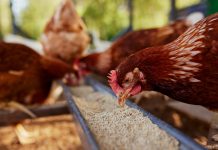The Animal and Plant Health Inspection Service, U.S. Department of Agriculture, explains here how in Puerto Rico, they hold the line on African swine fever (ASF)
African swine fever (ASF) is a highly contagious and deadly viral disease that affects both domestic and feral swine. It does not affect humans, 8but an outbreak in the United States would have devastating economic effects on the swine industry. USDA’s Animal and Plant Health Inspection Service (APHIS) has been closely monitoring ASF’s spread in Asia and Europe. When the disease was confirmed in the Dominican Republic – only 275 miles from Puerto Rico – APHIS employees found themselves squarely on the front lines of safeguarding America’s agriculture.
“African swine fever (ASF) is a highly contagious and deadly viral disease that affects both domestic and feral swine. It does not affect humans, but an outbreak in the United States would have devastating economic effects on the swine industry.”
“After we learned about the Dominican Republic, we started preparing our staff and partners,” said APHIS’ Puerto Rico State Plant Health Director Leyinska Wiscovitch. “We ramped up communications to ensure APHIS employees and the local U.S. Customs and Border Protection Agriculture Liaison were aligned and understood what they were each doing. We also developed a strict process to document, safeguard, and dispose of any pork and pork product we seized at the airports’ predeparture area.”
Prohibiting the movement of pork
Up until early September 2021, predeparture inspection in Puerto Rico allowed departing passengers to pack and carry pork and pork products into the continental United States. That all changed for them when APHIS issued a Federal Order prohibiting the movement of pork and pork products from the island to the mainland. APHIS enforces it in Puerto Rico, and the U.S. Department of Homeland Security’s Customs and Border Protection enforces it in the U.S. Virgin Islands. Subsequently, APHIS revised the Federal Order, outlining mitigations to allow certain products to move to the mainland United States, while continuing to provide the necessary protections against ASF.
“Some passengers are upset, and they don’t understand why we are seizing things that they used to take for decades to their relatives on the mainland,” Wiscovitch said. “Roasted pork and pork byproducts are not just food items but speak to their family traditions and special occasions.”
Regardless of the challenges, Wiscovitch said Puerto Rico APHIS employees are standing strong and upholding the Federal Order. “I am very proud of who they are and what they do,” she said. “Time and again Puerto Rico APHIS employees demonstrate their resiliency, initiative, dedication, and most of all their commitment to our Agency’s mission. No one else has a better team than the one I have.”
APHIS has implemented a wide array of other measures in Puerto Rico and the U.S. Virgin Islands, including:
- Training and awareness programs for producers, veterinarians, and the public.
- Active surveillance for ASF in the United States and its territories.
- Enhanced surveillance in Puerto Rico and the U.S. Virgin Islands.
- Increased laboratory capacity in the United States and its territories.
- Examination of potential pathways of introduction of ASF into the United States.
Keeping ASF out of the U.S
APHIS’ efforts go far beyond Puerto Rico and the U.S. Virgin Islands. Through APHIS, USDA has committed $500 million in emergency funding to keep ASF out of the United States. In addition, APHIS is establishing the United States’ first-ever foreign animal disease protection zone. The World Organisation for Animal Health (OIE) requires the declaring country to address the measures being implemented to prevent the introduction or spread of the disease within the zone. The measures include the implementation of biosecurity and sanitary measures within the zone, as well as intensified movement control and surveillance. APHIS has met all these requirements.
The stakes are high for the U.S. pork industry. In 2020, pork producers marketed over 131 million hogs, which provided total cash receipts of more than $19 billion, and provided about 28 billion pounds of meat to consumers worldwide.
Please note: This is a commercial profile
© 2019. This work is licensed under CC-BY-NC-ND.











